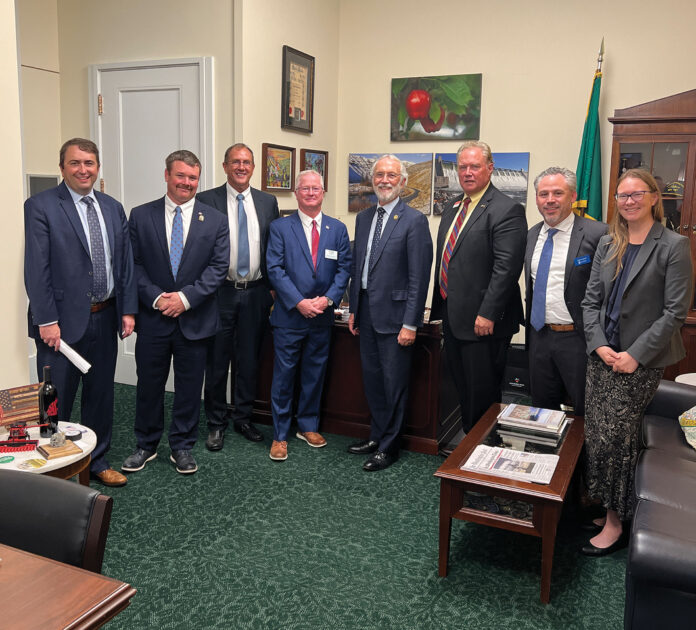The farm bill is typically passed every five years and supports the nation’s farmers through a variety of safety net, credit, conservation and other vital programs.
What unique strategy has the National Cotton Council implemented to support the passage of the farm bill?
Gary Adams, NCC
In response to the economic conditions affecting the nation’s farmers, the National Cotton Council spearheaded an initiative that led over 300 national and state groups to send a letter to congressional leaders, urging them to pass the farm bill before the end of the year. Various farm groups, which typically do not meet with Congressional offices together, united to present a cohesive front. This strategy involved representatives from the National Association of Wheat Growers, National Corn Growers Association, American Soybean Association, U.S. Peanut Federation, National Sorghum Producers, USA Rice Federation, Ameri-can Bankers Association, and the Farm Credit Council.
What was the purpose of this unified meeting with Congressional offices?
The National Cotton Council organized multiple commodity groups and lenders in visits to nearly 100 House and Senate offices.
The purpose was for Members of Congress to hear directly from farmers of all commodities and regions of the country about the challenges they are facing. The goal was to highlight the consequences of inaction for farmers, especially when they seek their 2025 operating loans. The groups met with nearly one hundred offices across the House and Senate, including key Congressional leadership, over two days in Washington, D.C.
What prompted this coordinated effort by the farm groups?
This effort came on the heels of a letter outlining the dire straits of the farm economy and the need for assistance this year, which was signed by 304 agriculture groups. The letter emphasized the critical need for Congress to pass a new farm bill that strengthens the safety net for farmers. The letter and Fly-In included a press strategy, organized by the NCC, to bring broader attention to the challenges farmers are facing. This resulted in coverage by various media outlets.
What are some key points from the letter to Congressional leaders?
The letter highlighted several critical issues, noting that the farm economy is in a downward spiral, with many producers facing multiple years of unprofitability. It projected that the estimated 2024 net farm income for U.S. agriculture would be down by more than 27% from 2022 levels. Additionally, federal support for production agriculture in 2024 is expected to be at its lowest since 1982. The letter also emphasized that the farm safety net has not kept pace with inflation and is inadequate to provide effective relief, underscoring the need for a durable farm safety net, strong federal crop insurance, and enhanced international marketing and promotion programs.
What is the expected outcome of this initiative?
The farm groups hope that Congress will act before the end of the year to pass a new farm bill that strengthens farm policy for America’s farmers. Failure to do so could leave thousands of family farms without options to continue producing in 2025 and beyond.
Gary Adams is president/CEO of the National Cotton Council of America.
